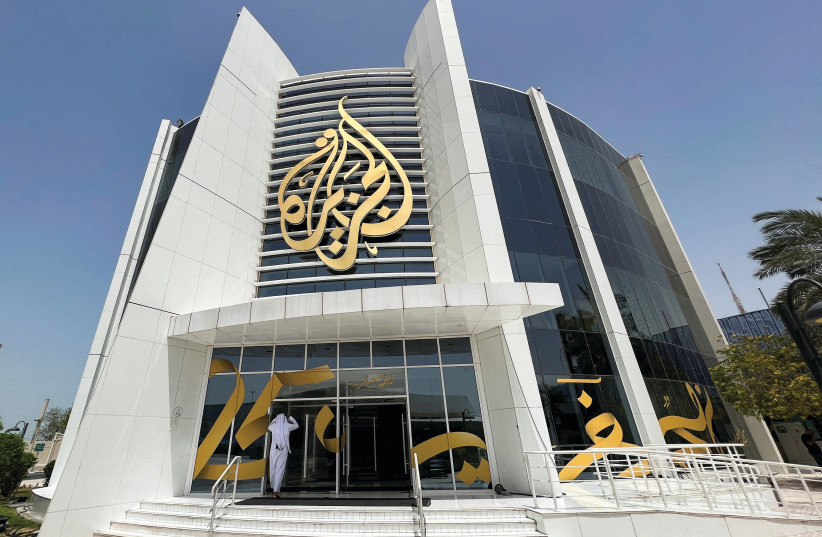With attention now subsiding on Qatar’s controversial FIFA World Cup 2022, the Qatari government has recently found itself again under scrutiny after four people tied to the EU – including a now former vice-president – were arrested for allegedly accepting bribes from Doha to influence European Parliament decisions. One confession has since been made in what has been described by EU lawmakers as potentially its “biggest corruption scandal” ever.
Qatar’s desire to amass influence should not surprise. Doha’s controversial policies – whether its terrorism financing, the backing of Islamists during the Arab Spring, or its 1995 coup – have long provoked protest from its regional neighbors, many of whom boycotted Qatar between 2017 and 2021. Surely fearing regional isolation, Qatar has targeted influence outside the Gulf to achieve inclusion, which is necessary for its vitality and ability to boost its Islamist agenda with impunity.
It spent billions of dollars funding US universities, forging military ties with the US, developing Qatar Airways, and hosting this World Cup (costing $220 billion) to boost its image in the West, which has increasingly embraced Doha as a source for culture, energy and mediation of conflicts.
Qatar’s ties to another media outlet
A new discovery now appears to confirm Qatar’s ties to another major media outlet – Middle East Eye (MEE) – through a connection with Qatar’s state-founded Al Jazeera (AJ) channel, which has received billions of dollars worth of resources from Doha. MEE has roughly 2.5 million followers throughout social media.
Its reporting has been cited by UN agencies, human rights watchdogs (Amnesty International and Human Rights Watch), think tanks (Chatham House and Brookings), and by major media outlets (The New York Times and The Washington Post).

MEE’s ties to Qatar have become apparent through the Twitter bio of Megan O’Toole, where she lists herself as both a senior editor for AJ English and MEE. Her dual role as editor is also confirmed via her CV.
Her ability to publicly and simultaneously pursue these dual roles at both media outlets is significant – it somehow does not trigger a conflict of interest. O’Toole can only maintain this duality because MEE’s interests align with AJ’s state-sponsored mission, or because AJ and MEE’s management must have previously approved of her roles.
Either way, this is only the latest example of how Al Jazeera and its state sponsor, Qatar, are linked to MEE. After all, Michael Rubin, a senior fellow at the American Enterprise Institute, has described MEE as “Qatar’s Other Covert Media Arm.” As pointed out by Rubin, British corporate records indicate that M.E.E. Limited was founded and appears to still be directed by Jamal Bessasso, “a former official for both Al Jazeera in Qatar and the Hamas-affiliated al-Quds TV in Lebanon.”
Recruitment from Al Jazeera
RUBIN HAS also observed how Middle East Eye “recruited heavily” from AJ’s staff – plucking senior editors, news editors and a “close associate” of AJ’s former chairman. MEE recently hired a new senior reporter, Azzad Essa, and a journalist, Faisal Edroos, both of whom spent years at AJ.
The timing of MEE’s emergence sheds light on its mission. It was founded when AJ’s credibility had increasingly come under threat. MEE emerged in April 2014, just one month after Saudi Arabia, the UAE, and Bahrain withdrew their ambassadors from Doha due to Qatar’s interference in foreign affairs.
The countries only returned their ambassadors after Qatar closed AJ’s Egyptian channel. Nevertheless, tensions persisted as Saudi Arabia and the UAE later that year pressed Qatar to “curb Al Jazeera.”
As AJ came under attack, Doha surely sought another outlet that could advance its Islamist talking points and do so under the guise of independent journalism. MEE appears to have filled that void. While it purports to be an independent outlet, it acknowledges that it “often sets the news agenda for the region.”
MEE’s agenda is largely in line with Qatar’s Islamism. Its anti-Israel obsession and Palestinian activism are blatant, defying any sense of objective reporting. MEE’s coverage of the Israeli-Palestinian conflict is largely located in a section titled “Occupation,” which is prominently advertised on its homepage. MEE also openly celebrates Palestinian activism with emojis on social media.
The outlet regularly platforms writers who seek to delegitimize Israel and falsely refer to Israel as a “settler-colonial entity.” Such writers falsely accuse Israelis of genocide, apartheid, mass rape and of being “licensed by the state to kill Palestinians.”
Writers platformed by MEE also accuse India of settler colonialism and of approaching genocide, and have tried to liken the conflict in Kashmir to that in the West Bank. What starts with Israel bashing at MEE is now starting to translate into India bashing.
The EU bribery scandal must alarm and trigger further investigation into the depths of Qatar’s influence campaign. With senior editor O’Toole’s dual role indicative of MEE’s ties to Qatar, with the Emir having placed an op-ed in The New York Times, and with Qatari-state enterprises having paid for features in Politico and Fox Sports, western journalism might be the next sector worth screening as Qatar seeks to promote its agenda, and sabotage America’s relationship with key allies such as Israel and India.
The writer is the director of policy education at StandWithUs, a nonprofit and nonpartisan international Israel education organization. He is also a Qatari Finance Fellow for the Middle East Forum.
